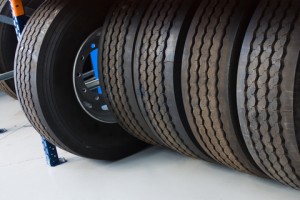 We can all agree that drivers need to check their tire pressure regularly in order to ensure proper tire pressure and tire safety. Nitrogen tire inflation is never to be considered replacement for checking tire pressure at least once a month. However, this need would only exist, and this practice wouldn’t be necessary if tires didn’t leak, which leads us today to discuss how tires leak and the biggest sources of these leaks.
We can all agree that drivers need to check their tire pressure regularly in order to ensure proper tire pressure and tire safety. Nitrogen tire inflation is never to be considered replacement for checking tire pressure at least once a month. However, this need would only exist, and this practice wouldn’t be necessary if tires didn’t leak, which leads us today to discuss how tires leak and the biggest sources of these leaks.
If your tire pressure is low, then at least one of three things are happening:
- A leak. Most tire leaks are the result of a hole or puncture, faulty valve, a porous or corroded wheel, or even a poor fit of the tire to the rim.
- Permeation. Permeation is the normal process by which the air in a tire bleeds through the tire’s body or carcass. It is typical for an air-filled tire to lose 1-2 pounds per square inch of pressure every month through normal permeation.
- Temperature Change. All gases expand and contract with temperature. If you live in an area that experiences dramatic temperature changes, you will have to adjust your tire pressure accordingly. Typically you will only have to adjust your tire pressure “up”, adding pressure as ambient temperatures decrease. Count on losing about 2% of your total tire pressure for every 10 degrees in temperature reduction (which can easily take place between daytime and nighttime, mind you).
Granted, most tire pressure loss can be resolved by replacing the tires if they’ve been punctured or have a faulty valve stem and by ensuring that they are properly fitted to the rim of your car. However, this doesn’t eliminate all possible leaks. It’s not as if fixing those leaks will mean that you never have to worry about your tire pressure again. We point this out because it’s been argued that nitrogen tire inflation doesn’t work because by fixing the leaks, you fix most of the tire pressure loss. Therefore, you don’t need nitrogen.
Nitrogen Tire Inflation Maintains Proper Tire Pressure for a Longer Period of Time
However, that argument doesn’t disprove the fact that nitrogen tires maintain proper tire pressure for a longer period of time. The argument doesn’t disprove that nitrogen tires are great against the other two conditions that cause low tire pressure. No, nitrogen won’t help you if you have a puncture in your tire, but that doesn’t mean it doesn’t help at all.
First of all, permeation happens no matter what. It’s the process of a vapor, gas, or liquid penetrating through a solid. It’s why our groceries have a shelf life. Before product is opened, we don’t want oxygen getting in. We don’t want oxygen getting in because oxygen is a very reactive element, and will cause food to go bad if its exposed long enough. However, if product sits in our pantries long enough, long after that shelf date, it won’t be good even if it was never opened because oxygen is still slowly getting in through permeation. Permeation also happens with tires, and it’s why we lose tire pressure over time, even in the absence of leaks, faulty valves, and poor fitting. And, guess what? Nitrogen permeates slower than regular air! Tires lose 1 to 2 psi per month when filled with air, while nitrogen tires will take over six months to lose that same amount of pressure. Permeation decreases tire pressure, and nitrogen substantially slows that process.
Second of all, since nitrogen is less reactive to temperature changes than oxygen and water vapor (both of which are in the air you use to fill your tires), it helps to maintain proper tire pressure for a longer period of time. This is why the airline industry and NASCAR have used nitrogen tire inflation for decades; it prevents their tires from blowing out under the extreme temperature changes. As stated, we lose 2% of our tire pressure with every 10 degree drop in temperature. That easily takes place between morning and night, as, for example, it’s supposed to happen today in St. Louis and it happened yesterday in St. Louis. Sure, you’re not driving 200 miles per hour or flying a jumbo jet, but the planet is still spinning and the weather is still changing, so your tire pressure is changing with it. Don’t believe what Bankrate.com argues on this, if you can even understand the paragraph that tries to argue against this.
Overall, your tires will lose pressure over time. If there was a way to prevent this from happening all together, then we wouldn’t need to fill them up regularly or to check the pressure from time to time. However, that’s not the case, which means that tires lose pressure, and anything that can be done to retain that pressure is a good thing. Nitrogen tire inflation is one of those things.





